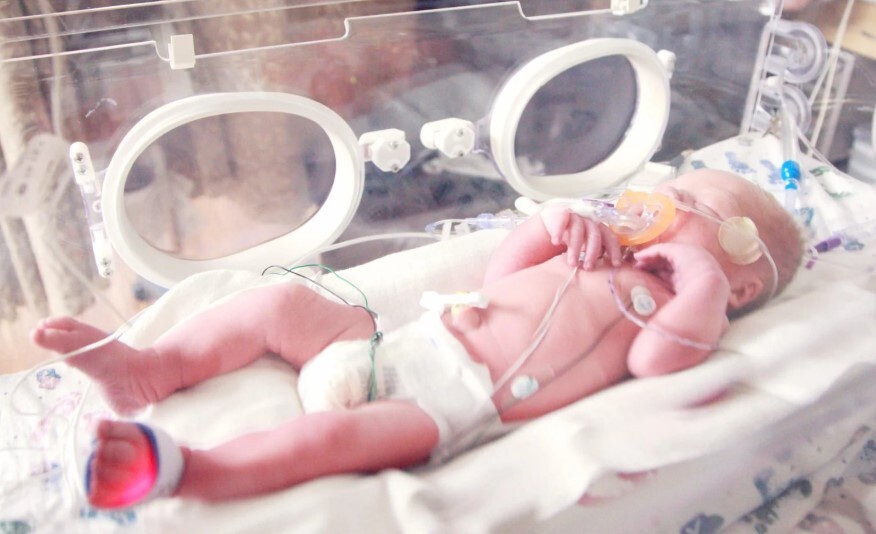What is the difference between a premature baby and a dysmature baby?
OverviewWhat is the difference between a premature baby and a dysmature baby?
When a baby is born, there are several terms that doctors can use to describe a newborn's condition. Two common terms are “premature baby” and “dysmature baby”. Although these terms are sometimes confused, they describe very different situations. In this blog we explain what both terms mean, what the causes are, and what care these babies need.
Premature baby
A premature baby is born before 37 weeks of pregnancy. Normally a pregnancy lasts about 40 weeks, so in a premature birth the baby is born prematurely.
Kenmerken van een premature baby:
- Low birth weight, but in relation to gestational age (usually normal).
- Immaturity of organs, such as the lungs, brain and digestive system.
- Problems regulating body temperature.
- Increased risk of infections due to an immature immune system.
Causes of Prematurity:
- Pregnancy complications, such as preeclampsia or an infection.
- Multiple pregnancies (twins or more).
- Problems with the uterus, such as a shortened cervix.
Care for premature babies:
Premature babies often need special care in the neonatal intensive care unit (NICU). Here they receive support with breathing, nutrition and temperature regulation. Many premature babies recover well with proper medical care.
Dysmature baby
A dysmature baby is born with a birth weight that is too low for the gestational age. This means that the baby has not been able to grow properly in the womb, regardless of whether the birth takes place on time, prematurely, or after the due date.
Characteristics of a dysmature baby:
- Lower than expected birth weight (below the 10th percentile for gestational age).
- Thin skin and few fat reserves.
- Possibly an old, wrinkled appearance due to growth retardation.
- Sometimes weaker muscles or a low energy reserve.
Causes of dysmaturity:
- Problems with the placenta, such as insufficient blood supply or nutrients.
- Smoking, drinking alcohol or taking drugs during pregnancy.
- Chronic diseases in the mother, such as high blood pressure or diabetes.
- Genetic abnormalities or infections during pregnancy.
Caring for Dysmature Babies:
Dysmature babies often need extra feeding and monitoring to catch up on their growth. In severe cases, hospitalization may be necessary for nutritional support or other medical problems.
The main difference
Het verschil tussen een premature en een dysmature baby ligt dus in de oorzaak en de situatie:
- A premature baby is born prematurely, but does not necessarily have to be small for gestational age.
- A dysmature baby is underweight or small for gestational age, regardless of whether the baby was born on time, prematurely, or after the due date.
Some babies can be both: for example, a premature baby who is also dysmature. In that case, the child is born prematurely and smaller than expected for the gestational age.
Importance of medical care
Both premature and dysmature babies require intensive medical care to ensure that they grow and develop optimally. Thanks to modern neonatology, most babies with these challenges can grow into healthy children





